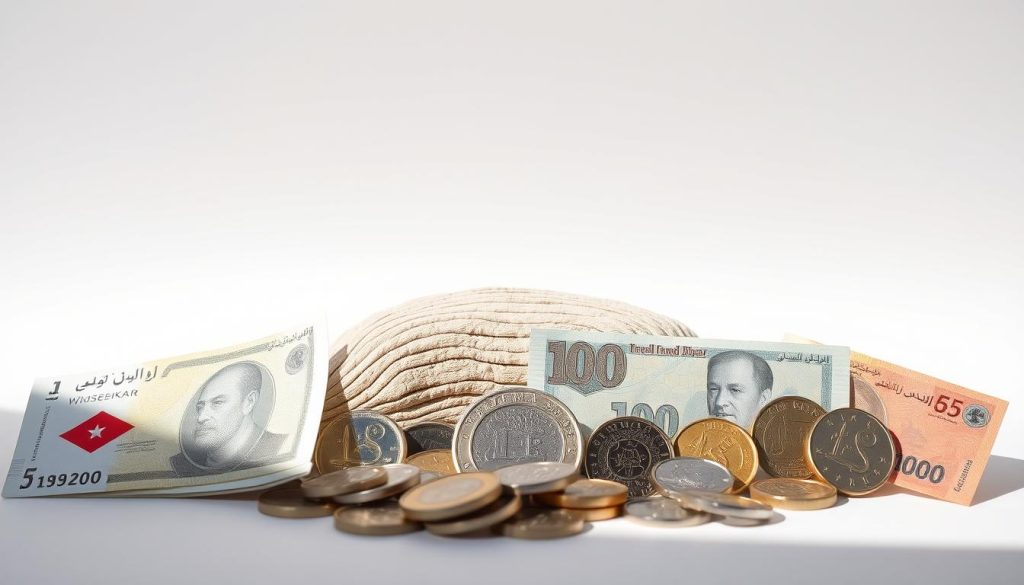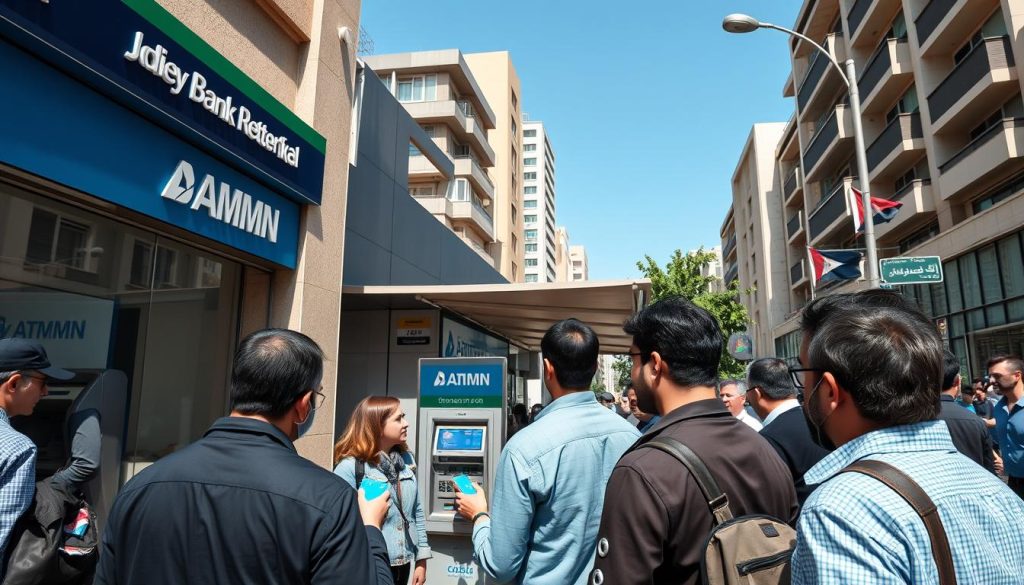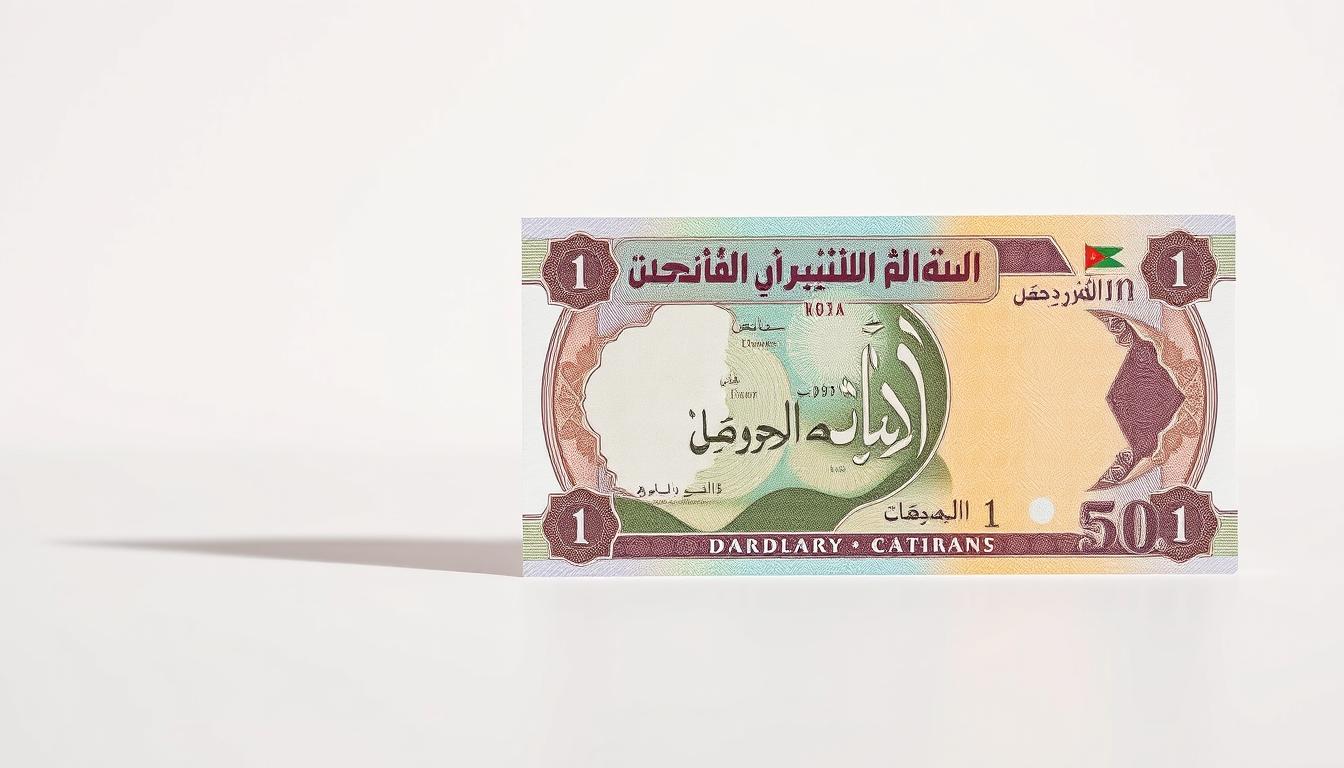✓ Accommodations✓ Flights✓ Rental Cars✓ Tours & Activities
Did you know the Jordanian dinar is one of the strongest currencies in the Middle East? Understanding this currency is essential for a smooth trip. Whether you’re exploring Petra or floating in the Dead Sea, knowing how to handle your money can save you time and stress.
In this country, cash is king for smaller transactions, but cards are widely accepted in hotels and larger establishments. Be mindful of exchange rates and fees, especially when using ATMs or banks. Planning ahead ensures you get the best value for your trip.
From navigating exchange options to avoiding unnecessary charges, this guide will help you make informed decisions. Ready to dive in? Let’s explore how to manage your currency like a pro.
Understanding Jordanian Currency
Understanding the basics of the Jordanian dinar can make your travels smoother. The dinar is the official currency, divided into 1000 fils. It’s the only legal tender, so having cash in this local currency is essential for most transactions.
Jordanian Dinar Basics
The dinar is available in banknotes and coins. Banknotes come in denominations of 1, 5, 10, 20, and 50 JOD. Coins are used for smaller amounts, making them handy for everyday purchases like snacks or tips.

Banknotes and Coins
Each banknote features historical figures and landmarks, offering a glimpse into the country’s rich heritage. Coins are practical for minor expenses, so it’s a good idea to keep some on hand.
Currency Exchange Options
Exchanging money is straightforward in Jordan. You can visit banks, exchange offices, or even some hotels. Rates vary, so it’s wise to compare options before converting your cash.
ATMs are widely available and offer competitive exchange rates. However, be mindful of potential fees for withdrawals. Using a card with low foreign transaction charges can save you money.
| Exchange Option | Pros | Cons |
|---|---|---|
| Banks | Reliable rates, secure | Limited hours, possible fees |
| Exchange Offices | Convenient, competitive rates | Rates may vary |
| ATMs | 24/7 access, local currency | Withdrawal fees may apply |
For the best conversion rates, avoid exchanging money at airports or hotels. Instead, opt for city-center exchange offices or ATMs. Always carry some cash for smaller transactions, as not all places accept cards.
Jordan: Ultimate Travelers Guide to Currencies & Payments
Managing your money efficiently is key to a stress-free trip. Credit and debit cards are widely accepted in urban areas, hotels, and restaurants, making them a convenient payment option. However, it’s essential to understand how to use them effectively to avoid unnecessary fees and maximize your exchange rate.
Using Credit and Debit Cards Effectively
Cards like Visa and Mastercard are commonly accepted in larger establishments. American Express is less widespread but still usable in some places. Before your trip, notify your bank to prevent any issues with international transactions.
Always carry some cash for smaller purchases, as not all vendors accept cards. This ensures you’re prepared for any situation, whether you’re shopping at a local market or tipping a guide.

Travel Debit Cards and Low-Fee Alternatives
Travel debit cards like Revolut and Wise are excellent options for avoiding hefty fees. They offer competitive exchange rates and low transaction costs, making them ideal for frequent travelers.
These cards also provide easy access to local currency through ATMs. Just be sure to choose secure locations, such as banks or busy shopping centers, to minimize risks.
Here are some tips for using ATMs safely:
- Use ATMs inside banks or well-lit, busy areas.
- Check for any additional charges before withdrawing money.
- Keep your card details secure and monitor your account regularly.
By following these strategies, you can enjoy a smooth financial experience during your trip. Whether you’re using a card or withdrawing cash, planning ahead ensures you get the best value for your money.
Navigating Money Management in Jordan
Planning your finances is a crucial step for a seamless experience in this country. Whether you’re a budget traveler or seeking luxury, understanding daily expenses and tipping practices can help you manage your money effectively.
Budgeting for Daily Expenses and Accommodation
Your daily spending will depend on your travel style. Budget travelers can expect to spend around 70-100 JOD per day, covering accommodation, meals, and transportation. Mid-range travelers might allocate 100-200 JOD, while luxury travelers could spend 100 JOD or more daily.
Accommodation costs vary widely. Budget options like hostels start at 50-80 JOD per night, while mid-range hotels range from 100-200 JOD. Luxury resorts often exceed 250 JOD per night.
For meals, street food and local eateries cost 5-10 JOD. Mid-range restaurants charge 20-40 JOD per person, and fine dining can go up to 50-80 JOD or more.

Tipping Practices and Transaction Fees
Tipping is customary in this country. In restaurants, a 10% tip is standard. For hotel staff, 1-2 JOD is appreciated, while private guides or drivers often receive 5-10 JOD per day.
To avoid unnecessary fees, plan your transactions wisely. Use ATMs in secure locations like banks to withdraw cash with minimal charges. Notify your bank before traveling to prevent issues with international card usage.
Here are some tips to save on exchange rates and fees:
- Compare rates at city-center exchange offices instead of airports.
- Use travel debit cards like Revolut or Wise for low transaction costs.
- Carry some cash for smaller purchases, as not all vendors accept cards.
By managing your money wisely, you can enjoy your trip without financial stress. Whether you’re dining out or exploring the city, these tips ensure you get the best value for your currency.
Conclusion
To make the most of your journey, mastering the local currency and payment methods is essential. Understanding the exchange rate and having a mix of cash and cards ensures smooth transactions wherever you go. Whether you’re dining out or exploring, being prepared saves time and avoids unnecessary fees.
Using cards like Visa or Mastercard is convenient in larger establishments, but always carry some cash for smaller purchases. ATMs are widely available, but check for withdrawal fees to keep costs low. Budgeting for meals, accommodation, and tips helps you manage your money effectively throughout your trip.
By applying these strategies, you can focus on enjoying your experience without financial stress. Plan ahead, stay informed, and make smart choices to enhance your journey.
The above is subject to change.
Check back often to TRAVEL.COM for the latest travel tips and deals.






